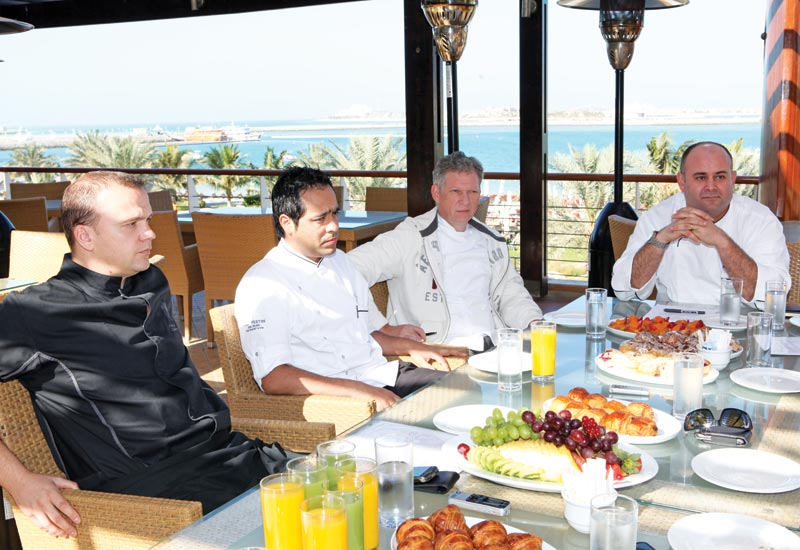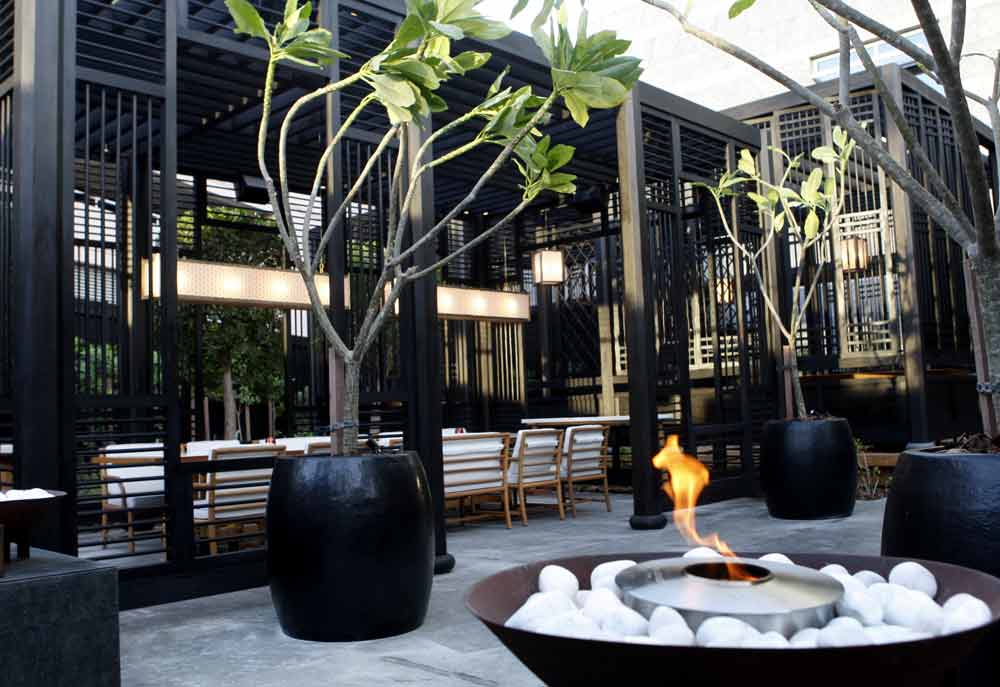 From left to right: Pierrick Cizeron, David Contreras, Michel Jost and Lloyd Cremer discuss how to tackle increasing hotel restaurant competition
From left to right: Pierrick Cizeron, David Contreras, Michel Jost and Lloyd Cremer discuss how to tackle increasing hotel restaurant competition
Upping their game
The chefs agreed that guests are increasingly knowledgeable – meaning they understand ingredients and expect them to be treated with care.
“I think people are looking for more simplicity and quality, for example, a good roast pepper with olive oil and garlic, an extremely good quality ingredient prepared simply, a no brainer, nicely presented. It’s the creation of simplicity, it’s good, it looks nice, you don’t need to think of how to eat it,” said Buchholzer.
Executive chef Emmanuel Pauliat, at Crowne Plaza Dubai, agreed: “The trend is for authenticity and quality, it’s better to stick to a product and get it right”.

| Advertisement |
In this regard, hotels have an edge over standalone restaurants, argued David Contreras, executive chef, The Westin Abu Dhabi Golf Resort & Spa, because of the pool of resources they can draw from.
“I think in hotels there’s a lot more opportunity to learn more things especially from the speciality chefs and this is where everything is going – before it used to be theme nights where you have your same team of chefs cooking different ethic cuisines, but this doesn’t work anymore, you need a speciality,” said Contreras.
“If you are doing Chinese food, you need to have your Chinese chef doing it or someone who will give it some authenticity. Now guests know what they are eating, they know good Chinese food, good sushi, good Indian curry, so everything now is driven by speciality and it’s very important to have those talents in the kitchen team and to be able to deliver authentic, honest food,” he asserted. This extended to buffets and banqueting, added Contreras.
2012 trends
“A trend in buffets and banquets especially is live stations and live cooking, it was not there so much before. People like to see the chef working to see how their food is being prepared, authentic true food. Guests see something done there simply but skillfully to get the best flavour out of the food,” said Contreras.
Lloyd Cremer, executive chef at JW Marriott Dubai, agreed that “more chef interaction” was important and suggested the need for hotels to provide menus with a “food to chef link”, rather than churn out corporate formulas.
“Having a soul and an identity is very important,” said Cremer.
However, achieving these standards of quality and authenticity ultimately depends on getting the basics right, reasoned Michel Jost, executive chef, The Viceroy Yas Hotel, Abu Dhabi.
“If hotels can cover 90% of the basics right they have it worked out. Sometimes we see that people try to over-complicate and the customer is not looking for it. [We must] serve food on warm plates, make an espresso in a warm cup, but 50-60% of places don’t get it. To get the basics right is very important. Take an ice cream — when is the last time you were given a perfect scoop?” he asked.
“If we focus on the basics we can get a lot right. And I think the customer recognises this,” concluded Jost.









 Search our database of more than 2,700 industry companies
Search our database of more than 2,700 industry companies









